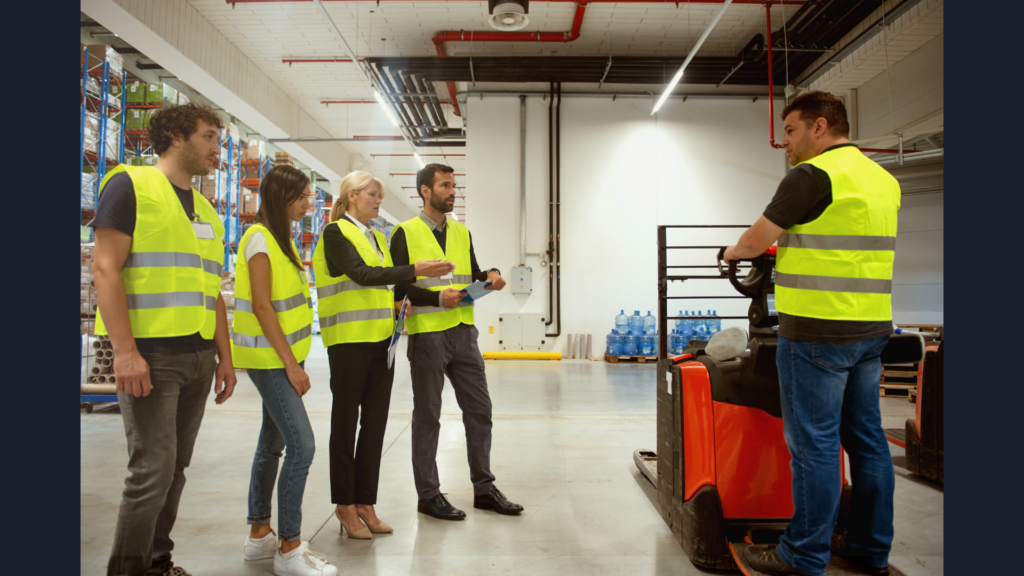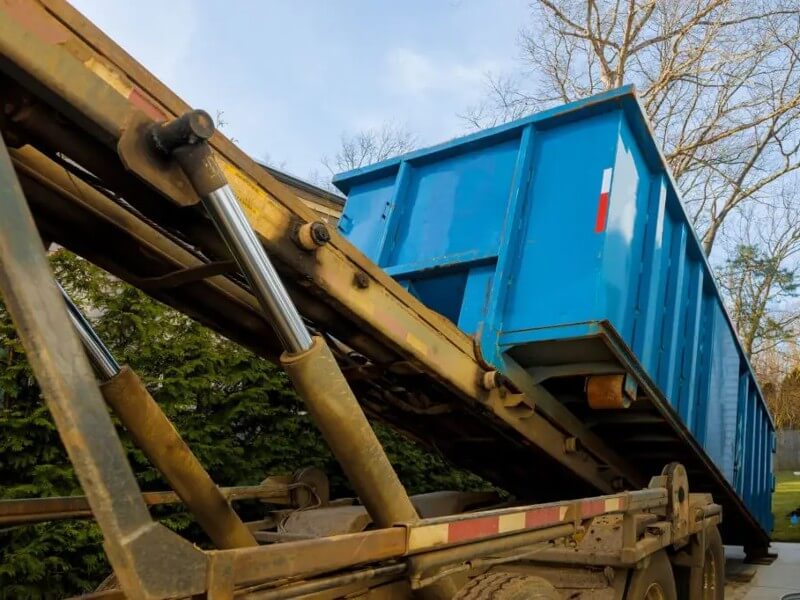Employee Training in Roll-Off Dumpster Operations
The Importance of Employee Training in Roll-Off Dumpster Operations
In the world of roll-off dumpster operations, the stakes are high. Every day, there are challenges to face, from handling heavy equipment to meeting customer demands. This industry isn’t just about collecting and disposing of waste; it’s about doing so safely and efficiently. One of the cornerstones for achieving such efficiency? Robust employee training.
Why Proper Training Matters
Training isn’t merely a formality; it’s the foundation of success. When staff know what they’re doing and why they’re doing it, things run smoother. More importantly, they make fewer mistakes. It’s easy to assume that operating a roll-off dumpster is simple. But in reality, it requires:
- Knowledge of the equipment
- Awareness of safety measures
- Understanding customer needs
By ensuring each team member is well-trained, it’s like putting a safety net under the business. If everyone knows their job inside out, the chances of errors reduce dramatically. And in this business, fewer mistakes mean happier customers and safer operations.
Impact on Safety and Service Quality
Safety is paramount in this line of work. Every year, accidents related to waste management and disposal are reported. A significant number of these accidents can be traced back to a lack of training. By investing in a comprehensive training program, these risks are minimized. On the flip side, when employees are trained well, service quality improves. Consider these points:
- Proper training reduces the chances of mishandling equipment.
- It ensures that waste is managed and disposed of correctly.
- A well-trained staff can handle customer queries and concerns more effectively.
In short, training is not just an added expense or a checkbox to tick off. It’s an investment in safety, service quality, and the business’s reputation. When a roll-off dumpster operation is known for its professionalism and safety standards, it stands out from the competition. And in a competitive market, that difference can be the key to long-term success.

Key Components of Effective Training Programs in Roll-Off Dumpster Operations
Ensuring that the training program for employees is comprehensive and impactful is crucial. But what makes a training program truly effective? Let’s dive into the vital components that should be a part of any training regimen for roll-off dumpster operations.
Understanding the Equipment
Every piece of machinery has its quirks and specific operational methods. Getting to grips with these is essential.
- Hands-on Training: Allow employees to engage with the equipment directly, under supervision, to learn its ins and outs.
- Maintenance Know-how: It’s not enough just to know how to operate the machinery. Understanding basic maintenance can prevent many issues.
Safety Protocols
Safety is non-negotiable in this industry. Training programs should emphasize this aspect above all.
- Standard Safety Practices: Cover the basics, from wearing the right gear to understanding the danger zones around heavy machinery.
- Emergency Protocols: Equip the team with knowledge about what to do in emergencies, such as equipment malfunctions or accidents.
Customer Service Skills
Dealing with clients is a significant part of the job. A well-trained team can manage customer expectations and handle issues professionally.
- Communication Skills: Teach employees how to interact with clients effectively, addressing their concerns and providing clear information.
- Problem-solving: Equip your team with the tools to handle customer complaints or issues, turning potential negatives into positives.
Environmental and Legal Considerations
The waste management industry is bound by many regulations. Being aware of these is essential to avoid legal complications.
- Waste Disposal Laws: Ensure every team member understands the legal ways to dispose of different types of waste.
- Environmental Impact: Highlight the importance of environmentally-friendly disposal methods and the role each employee plays in it.
A robust training program doesn’t just end once these topics are covered. Regular refresher courses, updates on new equipment or laws, and continuous on-the-job training are essential. It ensures that every team member remains at the top of their game, offering the best service and maintaining the highest safety standards.

Continuous Learning and Refresher Courses in Roll-Off Dumpster Operations
The roll-off dumpster industry, like any other, is ever-evolving. New technologies, updated regulations, and shifts in customer expectations mean that learning doesn’t end once the initial training is over. Embracing a culture of continuous learning is essential for businesses to thrive and stay ahead.
Benefits of Continuous Learning
Continuous learning ensures that businesses can:
- Adapt to industry changes swiftly.
- Maintain high safety and service standards.
- Boost employee morale and reduce turnover.
Implementing Refresher Courses
Regular refresher courses are a vital aspect of continuous learning. These sessions help employees remember and reinforce what they’ve already learned, and introduce them to new knowledge.
- Scheduled Sessions: Set regular intervals, be it annually or bi-annually, for refresher training. It keeps everyone on the same page.
- On-the-spot Training: Whenever there’s a new equipment purchase or a change in regulations, organize immediate training sessions.
Adapting to New Technologies
The roll-off dumpster industry isn’t immune to technological advancements. From new software for logistics to advanced machinery, staying updated is key.
- Tech Training: Whenever a new technology is integrated into the operations, ensure that everyone knows how to use it effectively.
- Feedback Loops: Encourage employees to provide feedback on these technologies, helping the business understand where further training might be needed.
Personal Development Opportunities
While the primary focus is on job-related training, offering courses that help employees grow personally can have indirect benefits for the business.
- Soft Skills: Training sessions on communication, leadership, or conflict resolution can help employees in their day-to-day interactions.
- Industry Seminars: Sending team members to industry conferences or seminars can provide them with a broader perspective, bringing fresh ideas back to the business.
Embracing continuous learning in roll-off dumpster operations isn’t just about maintaining standards. It’s about pushing those standards higher, ensuring that the business is always prepared for what comes next, and keeping a team that’s confident, knowledgeable, and ready for any challenge.
Benefits and ROI of Employee Training in Roll-Off Dumpster Operations
Investing in employee training might seem like an added cost, especially for smaller businesses. However, when executed effectively, the returns on this investment are substantial, both in tangible and intangible ways.
Tangible Returns
These are the direct, measurable outcomes of a well-trained staff:
- Increased Productivity: Employees who know their roles and the tools at their disposal can complete tasks more efficiently.
- Reduced Errors: Proper training means fewer mistakes, which can be costly in terms of time, resources, and reputation.
- Safety Compliance: Trained employees are more likely to adhere to safety regulations, reducing the risk of accidents and potential legal liabilities.
Intangible Benefits
Beyond measurable metrics, training offers numerous indirect benefits:
- Employee Morale and Retention: Staff members who feel the investment of training tend to be more satisfied with their jobs. This can reduce turnover, which is costly and time-consuming.
- Customer Satisfaction: A well-trained team provides better customer service, leading to repeat business and positive word-of-mouth referrals.
- Brand Reputation: In the roll-off dumpster industry, a company’s reputation is invaluable. Properly trained employees ensure that standards are met consistently, bolstering the brand’s image.
Calculating ROI
For businesses that want to quantify the return on their training investments:
- Start with Direct Savings: Calculate the costs saved from reduced errors, fewer accidents, and increased efficiency.
- Factor in Retention: Consider the costs of hiring and training new employees versus retaining existing ones. Improved retention rates from training can result in significant savings.
- Measure Customer Impact: Monitor customer feedback before and after training interventions. More positive reviews can lead to increased business and revenue.
While the upfront costs of training in roll-off dumpster operations might give some business owners pause, the long-term benefits and returns are clear. Not only does it lead to a more efficient, safe, and productive operation, but it also fosters a positive work environment and solidifies a strong brand reputation.

A Strong Team is a Strong Company
The roll-off dumpster industry is more than just hauling waste; it’s about ensuring safety, efficiency, and excellent service. By prioritizing employee training, businesses are setting themselves up for success. Investing in comprehensive training programs ensures a team that’s well-equipped to face challenges and capitalize on opportunities. With the right training approach, businesses can look forward to increased productivity, satisfied customers, and a strong industry reputation. The future looks bright for those who place importance on continuous learning and skill development.
FAQs for Employee Training in the Roll-Off Dumpster Industry
Why is employee training so essential in the roll-off dumpster industry?
Employee training ensures that staff can operate equipment safely, provide excellent customer service, and comply with industry regulations. This not only minimizes risks but also enhances productivity and customer satisfaction.
How often should refresher courses be conducted?
Refresher courses should ideally be conducted annually, but depending on the nature of the job and any changes in industry regulations, they may be needed more frequently.
Are online training modules effective for this industry?
Online training modules can be an effective tool, especially for theoretical knowledge. However, hands-on training is crucial for certain aspects like equipment operation.
How can we measure the ROI of our training programs?
ROI can be measured by evaluating various factors such as reduced accident rates, increased operational efficiency, enhanced customer satisfaction, and employee retention rates.
Are there industry-specific training programs available?
Yes, there are various industry-specific training programs and certifications available that focus on safety protocols, equipment handling, and customer service best practices in the roll-off dumpster sector.



